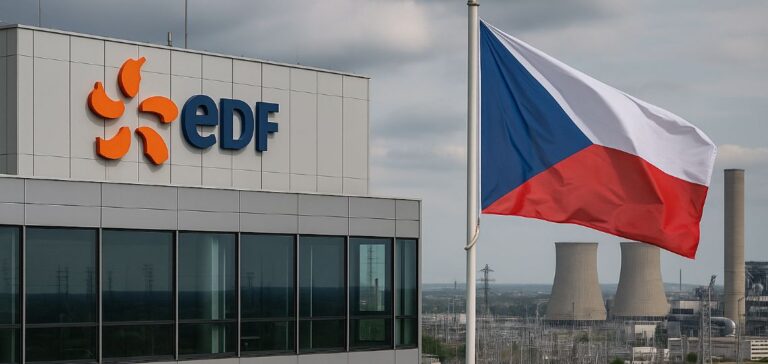The Czech Republic’s Office for the Protection of Competition (UOHS) confirmed the rejection of Électricité de France’s (EDF) appeal against the selection process of Korea Hydro & Nuclear Power (KHNP) for the development of new nuclear reactors at the Dukovany site. The authority maintained that Dukovany Power Plant II had acted under the security exemption provided by the Public Procurement Act.
The UOHS chairman, Petr Misna, stated that “in the case under investigation, the contracting authority proceeded on the basis of the security exception,” making it impossible to challenge under the terms of the law. The authority also dismissed the part of EDF’s complaint regarding the Foreign Subsidies Regulation and the principles of economy, effectiveness, and efficiency, declaring it had no competence in the matter.
EDF unsuccessfully contests KHNP’s selection
EDF argued in its appeal that the Office should assess the contracting authority’s conduct, particularly regarding the selection of the preferred supplier, KHNP’s ability to perform the contract, and alleged procedural errors. However, Petr Misna clarified that “the law does not provide for the possibility to file objections against such acts when the formal award procedure is not followed.”
EDF retains the possibility to appeal the decision to the regional court. In parallel, the UOHS officially closed the procedure concerning Westinghouse, after it withdrew its own appeal against the choice of the South Korean supplier.
Impact on the nuclear project timeline
The appeal procedure delayed the initially planned deadlines, particularly the signing of contracts for the first reactor, initially set for the end of March 2025. The Office indicated that sending documents to the Republic of Korea by traditional postal services had prolonged the proceedings by more than a month for each communication.
With the conclusion of the appeals procedures, the restriction preventing the conclusion of public procurement contracts is lifted. Negotiations can now progress towards the effective signing of contracts for the construction of four new nuclear reactors, a decision motivated by potential cost savings estimated at 25% compared to separate tender processes.
Context of the Czech nuclear project
The Czech Republic’s current nuclear fleet produces about one-third of its electricity, notably through the four VVER-440 reactors at Dukovany, commissioned between 1985 and 1987, and the two VVER-1000 reactors at Temelín, operational since 2000 and 2002.
In October 2023, EDF, Westinghouse, and KHNP submitted binding bids for a fifth reactor at Dukovany and non-binding offers for three additional units. However, in February 2024, the Czech government announced its intention to contract for four units in a single process, excluding Westinghouse for failing to meet the necessary conditions.






















